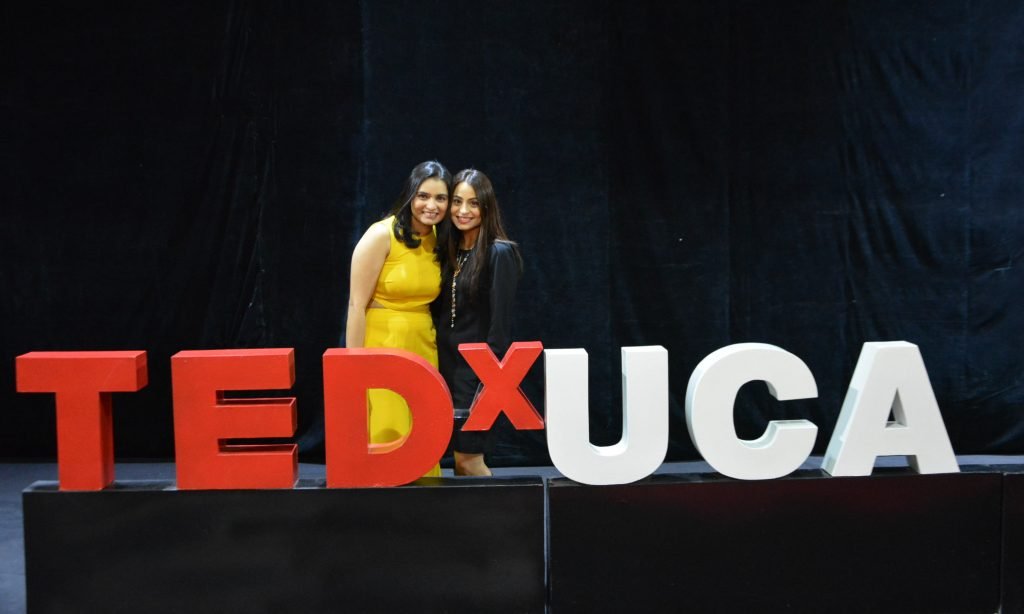In March 2019, I was invited by the University of Central Asia to speak at a TEDx event hosted by the students in Naryn, Kyrgyzstan.
This is one of the scariest things I’ve said yes to – maybe even scarier than living and working in Afghanistan!
The organizer of the event asked me to speak about any topic within the behavioral science domain. So I asked myself what is the one thing that I’ve learned over the last 10-12 years that would have significantly changed my life? And the answer was clear: Attachment Theory – the Science of Relationships.
I’d like to thank the students at UCA for organizing the event and my family and friends who helped me through the process!
The video is available here: Follow Your Heart | Sabrina Lakhani | TEDxUCANaryn
And my script is below:
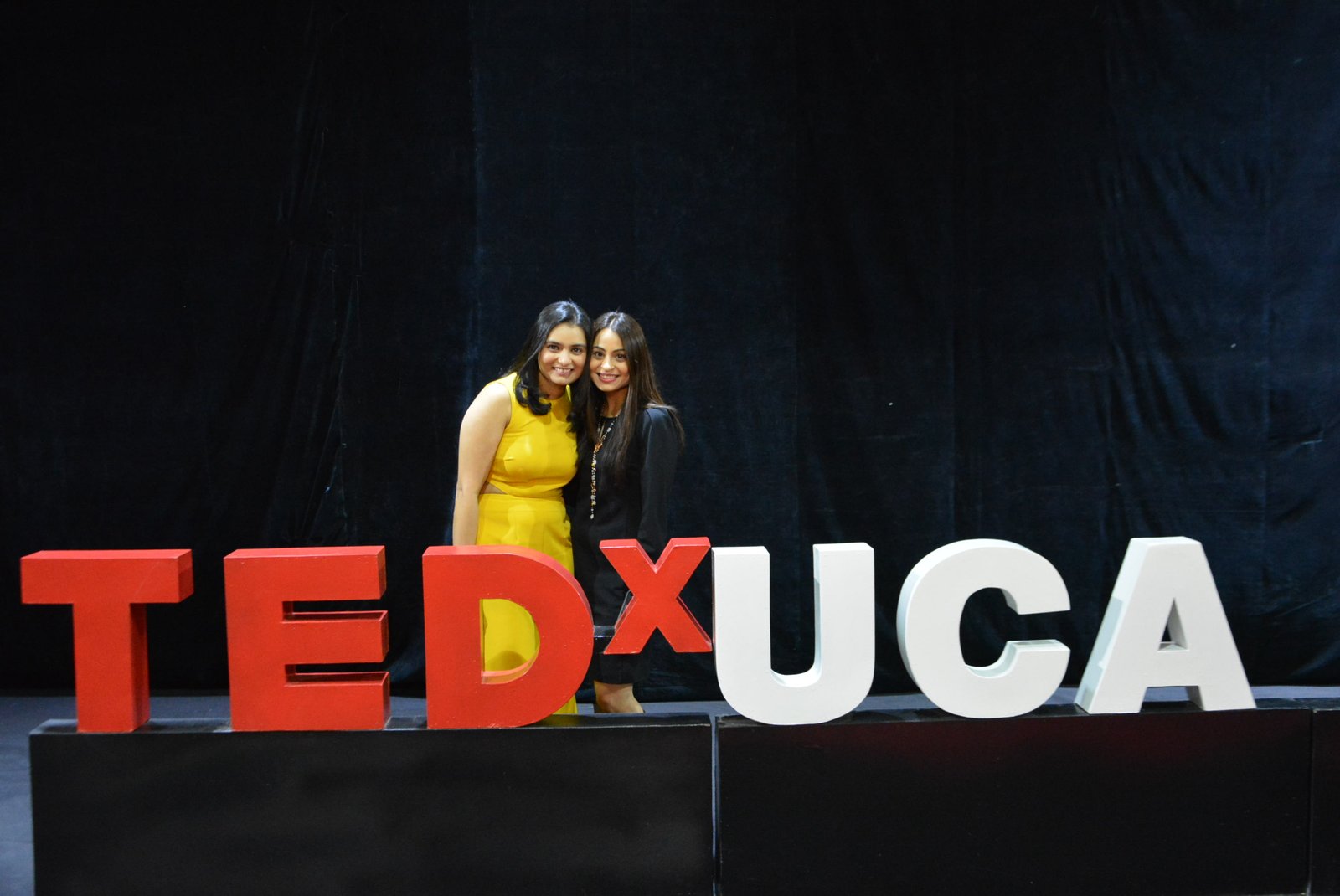
Follow Your Heart, But Take Your Brain With You
How many of you are in love?
Come on, be honest. Don’t worry, your parents aren’t here.
How many of you plan on getting married?
Let’s talk about what we look for in a partner…
- Must be incredibly good looking. It’s okay, I’m not judging…! 😉
- Well-educated
- Family background
- Goals and values?
- Shared hobbies?
I was in your shoes 12 years ago. I was madly in love with my childhood best friend and he checked all these boxes.
We had a big, beautiful wedding, went on lots of trips together…

And now he’s my ex-husband.
There was no cheating, no drugs, and no violence. So what was it? What happened?
Believe me, I was wondering the same thing.
I spent the last three years reading every research paper about relationship patterns that I could get my hands on.
And even read several dozen books.
I’m proud to say…I’ve finally figured it out!
I’m here today to share this with you, because the price of a failed marriage is just too high.
I don’t want ANYONE to ever have to go through that.
Let’s go back to our checkboxes:

What if I told you that the only thing that scientifically predicts marital satisfaction isn’t even on this list?
And that scientists have been studying this for decades…?
By the end of this talk, you’ll know yourself a bit better, know how to identify a suitable partner, and create your happily ever after.
Let’s do a science experiment.

Close your eyes and imagine your partner tightly wrapping you in a blanket.
And now imagine that the blanket melts away.
Open your eyes.
How did that make you feel?
Your instinctive reaction to the blanket coming and going puts you in one of 3 categories.
If you’re like me, and you felt safe and protected at first and then exposed when it melted away. Then congratulations, you are a Fairytale Seeker. Scientists would say you have an Anxious attachment style. Roughly 25% of the world population is like us.
If you felt suffocated or trapped at first and then felt free or relieved… congratulations, you are a Freedom Seeker, like my ex-husband. The scientific term for this is Avoidant attachment style. This is shown on the far right. Again, roughly 25% of the world population.
The instinctual responses of “Mmmmm this feels so good” and “Ehhh, get off of me” tells us that these two groups are wired very differently.
And lastly, if you simply felt happy in the blanket and sad when it melted away, then you have what science calls a Secure Attachment style. Secure people are easiest to understand and explain, and they make up about 50% of the world population.
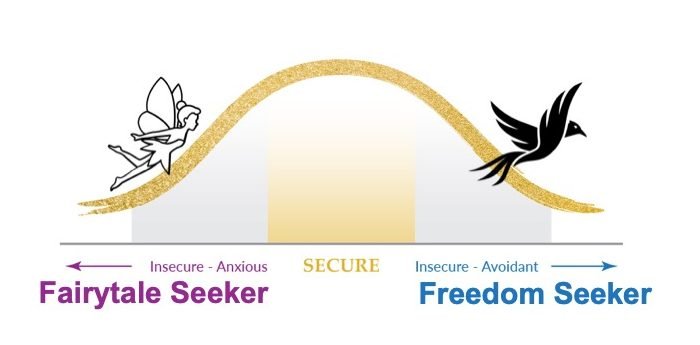
This experiment demonstrates Attachment Theory on the most basic level.
Your body’s patterned physiological response to human attachment and love.
It’s deeper than your thoughts, almost like an instinct.
See? Science! Fascinating, isn’t it? (pause and smile)
Okay, maybe not EVERYBODY is a science nerd and geeks out on this stuff.
Let me tell you how this can affect you.
If you don’t get a handle on attachment styles, here’s what your life can have in store for you…
You could…file for divorce within 6 weeks of getting married. True story. I did that.
You could…find yourself alone, on the bathroom floor, about to overdose on pain relievers. True story. I’ve done that too.
Or you could…find yourself crashing into a house, almost killing someone because you and your partner were arguing in the car.
Divorce. Suicide. And Murder. Do I have your attention now?
Attachment styles aren’t inherently good or bad.
But without sufficient knowledge, some attachment combinations are simply destructive.
You might be thinking that ‘Love is all you need’. I hate to break it to you, but that’s just fake news. (pause)
Here’s what’s real though…
There are 6 combinations, but two of these combinations are very rare…

So we’re going to take them out and focus on the remaining 4. We have 3 happy combinations and one deadly one.

For those of you with a Secure attachment, you might be thinking you’re in a great position, which is true, but pay attention because you’ll be the therapist for all your friends with relationship problems.
And for everyone else, you might look at this and say, ok so as a Fairytale or Freedom Seeker, I have a 1 in 3 chance to end up in a heartbreaking relationship.
What’s the big deal?
Science shows us that unfortunately, you have a much greater chance of being in the deadly combination of Fairytale + Freedom Seeker for three reasons:
- You find people with a Secure attachment style to be boring. They give you all the attention or all the space you want.
- You mistake emotional intensity for chemistry. We can all thank Hollywood and Bollywood for our distorted idea of love.
- And lastly, you’re drawn to what’s familiar. You subconsciously look for someone who resembles one of your parents. Since you are a Fairytale or Freedom Seeker, the opposite exists in one of your parents.
So, you see, the solution is very simple – just stay away from the opposite attachment style and you’ll save yourself from all the heartache in the world.
Or find a secure partner here and get married today. I’d love to attend a wedding while I’m here! (pause)
I know… that’s not very realistic. We can’t control who we fall in love with.
But we can prepare ourselves for marriage by understanding how attachment styles are set in childhood and dictate important decisions in adulthood.
Let’s take a look into my life as a child…

As a three-year-old, I stay up late into the night with my mother, looking out of the window, and waiting for my father to return home.
As I get older, I start watching the clock in the evenings. It’s 6pm and my father is not home. By 6:15pm, I’ve already called him 3 times and left 2 voicemails, begging him to come home.
I can’t understand why he is unreachable and unresponsive, so I conclude that he never wanted a family and he doesn’t really love me.
But the reality is that my father is a Freedom Seeker.
And from time to time, Freedom Seekers need to check out, disengage, and more so when there’s conflict.
Now I understand why he felt like a caged bird. How poetic of him to put it in those words…!

I made the same mistake in my marriage.
When my Freedom-Seeking husband and I had our first big fight, he went silent and slept on the couch for 10 days.
I perceived it as rejection and felt abandoned. I concluded that he didn’t want to be married and didn’t love me either.
We lost each other as spouses and best friends. It was a double whammy.
Now that you know my story, I trust you won’t do the same thing.
You’ll be wiser than I was.
You’ll manage conflict in a constructive way. Because conflict is part of all close relationships.
It arises from our deepest fears such as separation, abandonment, or loss of autonomy.
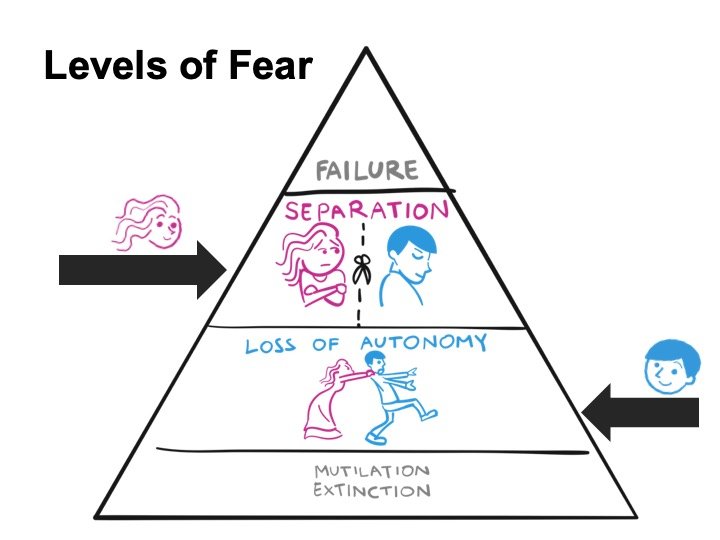
The problem is that when conflict arises between a Fairytale Seeker and Freedom Seeker, they assume that their partner is the enemy.
So they break up, or get divorced, and start the cycle again with someone new.
The only way out of this deadlock situation, to break the cycle, is self-knowledge and compassion for our partners.
The goal is to work together to improve the bounce-back rate.
Meaning how efficiently you and your partner are able to identify the activated fear, address the conflict, fill the unmet need, and get back to being good.
As the bounce-back rate improves, both partners get what they need more easily and more reliably.
They begin to trust each other. And together, they form a secure base of love.
So now that we know the behavioral science behind intimate relationships, here are a few tips for you to put into practice right away.
Number 1: Ask the blanket question on first dates. It’s fun, creative, and accurate. It’s always better to know attachment styles before things get too serious.

Number 2: For Fairytale Seekers: Develop a Self-soothe toolkit. This can include self-talk audio tracks, breathing exercises, a yoga routine, music playlists – a variety of things you can do on your own to ground yourself during stressful situations, no matter where you are.
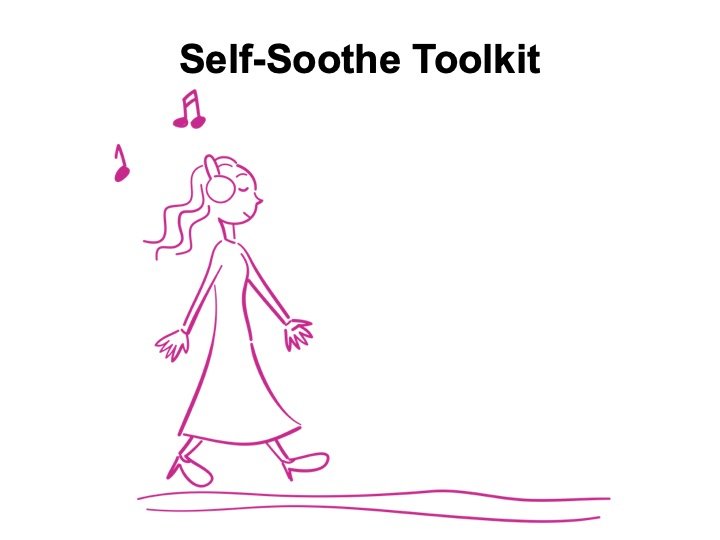
Number 3: For Freedom Seekers: Communicate when you need to check out. Taking a timeout is perfectly acceptable and letting your partner know when you’ll be back will establish a deeper sense of trust. And you’ll have a happy partner to come home to!

Now we can harness the best of nerdy science in the area of personal relationships.
And commit to following our hearts and taking our brains with us.
It’s the most important step towards creating our happily ever after.


